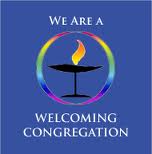Presenters
Index Page
Barker, Geraldine
Bodner, Mark
Burton, Laura
Castleberry, Kasey
Davis, Sam
Davis, Terry UU minister
Frost, Edward UU minister
Kibler, Myra
Nicholson & Brown
Sally Pamplin
Robison, Gerald
Seidman, Karl
Sheber, Larry
Sherod, Bob
Simmons, Antoine
Tremblay, Alexandra Immunologist
Waddell, Donna
Walker, James
West, Herb & Myrna
Woehr, Terry
Wood, Bruce
Other Sources
Being Good Without God
By Gerald Robison
This presentation was delivered at Mountain Light UUC on 2008 August 24.
St. Augustine, as a young man, was quoted as saying, "O God, make me chaste, but not just yet." I remember when I faced lots of temptation to be unchaste. Amazing how that subsides with age. Actor Bruce Willis recently said, "I don't believe in the general success of long-term fidelity or monogamy." (Playboy, 7/2007, p. 146) He also quoted Chris Rock who stated, "A man is only as faithful as his options." Mae West said, "To err is human, but it feels divine." In the movie, City Slickers, Billy Crystal observed: "Women need a reason to have sex. Men just need a place." Supermodel, singer, and now First Lady of France, Carla Bruni Sarkozy, said, "I am a tamer of men, a cat, an Italian. Monogamy bores me terribly…" And, then there is New York Governor, Eliot Spitzer. What these things say to us is that sexual morality can be difficult to maintain. So can just being good in general.
We bid each other farewell often with the exhortation, "Now be good, you hear," as if we would fall into hopeless degradation without this little reminder. How big is this struggle to be good, moral, upright? An early church father, Origen, castrated himself, trying in vain to rid his mind of dancing girls. The supposedly celibate Apostle Paul wrote, "For I know that in me, that is, in my flesh, dwelleth no good thing: for to will is present with me, but to do that which is good is not. For the good which I would I do not: but the evil which I would not, that I practice… Wretched man that I am!" (Rom. 7:18, 19, 24) Jesus, himself, raised some suspicion about his own morals when he said, "Why callest thou me good? None is good save one, even God." (Mk. 10:18) Was he just being modest, or was he trying to tell us something?
Many persons believe that it is only religion, belief in the supernatural, instructions and prohibitions from on high that keep humankind from plummeting into the abyss of evil. Religion is viewed as a short tether that jerks us back sharply, again and again, like dogs yearning for release. Morals without God? No way!
In traveling on this morality road, I feel that I should remind us of some potholes along the way. These hazards may call for a detour, as in the words of an old song by the late Spade Cooley, "Detour. There's a muddy road ahead."
The first pothole is (1) the possibility that there is no evil, since God is supposedly all powerful and also all good. This is the issue called Theodicy. Can a God who has the power of complete control either commit or permit evil and still be good? This is a good question? Can almighty God permit an earthquake and tsunami that kills hundreds of thousands of men, women, and children, and millions of animals, and still be praised as good, kind, merciful, caring, and gracious? I firmly believe that evil is palpably real, whether done by humans or by terrible acts of nature, called acts of God by our insurance companies. Therefore, I must either accept that there is a god who is less than perfect, or I must reject the existence of a personal all powerful god altogether. I choose the latter.
The second pothole on the morality road is (2) just how good or moral do we really want to be? We are told that adults should not tell a child that he is a good boy or good girl. Instead, we should praise only their acts of good behavior. Why? Because there seems to be an inborn aversion to being told that one is a good person. The child may viscerally react badly just to prove you are wrong about him or her. This repugnance continues into the youthful years. My sweet wife said that it was good she met me when she did in later years. She would have had no interest in me as a young man studying for the ministry and trying to be a good boy. Young girls like bad boys. As the rock song says, "B-b-b-b Bad to the Bone." Goodie, goodie – an abhorred way of being described in one's youth. Maybe we adults secretly harbor the same feelings – except my mother, of course.
The third pothole for consideration is (3) that people often differ as to what is the good and moral thing. This tendency caused the Jewish prophet Isaiah to remonstrate, "Woe unto them that call evil good and good evil; that put darkness for light, and light for darkness; that put bitter for sweet, and sweet for bitter!" (Is. 5:20) This sounds like blatant acts of distortion, and we have all witnessed this first hand and in the news; but, not everything is so cut and dried.
The moral and immoral thing can often get lost in a fog. Is the following moral or immoral:
- end an unhappy, unsatisfying, unfulfilling marriage?
- kill another person, even in war?
- execute vicious criminals?
- slaughter animals for food or sport, or use them for medical research?
- block terminal patients in pain from the relief found in marijuana, cocaine, or other forbidden substances?
- harvest embryonic stem cells for medical research and application?
- abort a fetus for any reason?
- engage in homosexual acts?
- do oral or anal sex or use sex toys and other devices for pleasure?
- commit adultery for any reason?
- torture (even if you do not call it torture) enemy combatants when the information obtained could save thousands of innocent lives?
- lie to your spouse or close friend when you know the truth will hurt both them and yourself?
We could go on and on.
I firmly believe we can be less than perfect, but essentially good, upright, moral citizens without faith in supernatural beings and heaven-sent guidance. Why? Firstly, because (1) morals predate religion and evolved with biological evolution and evolution's blueprint, natural selection. Let us be assured. Biological evolution is real. Volumes of proof pore in daily. Finally, no less that Pope John Paul II succumbed to the evidence and shocked the Christian world by acknowledging the truth of evolution (10/1996). The current Pope Benedict XVI reaffirmed his own acceptance of the same (7/2007). Anti-evolutionists are rapidly being placed into the same category as those who still affirm that the earth is flat, the sun orbits the earth, and men have never walked on the moon.
Which came first, morals or religion? Clearly, with little or no doubt, morals preceded religion by a huge margin. If one is a Bible literalist, morals and religion began together about 6,000 years ago in the Garden of Eden. However, we can now trace evolutionary modern humankind thousands of years before this. Author Michael Shermer in his book, Science Friction, writes that evolutionary humankind appears to have no codification of practicing religious rites any further back than about 10,000 years and, incidentally, created a different religion for every one of those 10,000.
Therefore, humans and their ancestors, even if faint possible intimations of religion extend back 80,000 years, lived many thousands of years before this. Without religion, early homo sapiens and their forebears had to discover ways to cooperate, to get along, to help each other, to provide mutual assistance in hunting, gathering food sustenance, in the caring of offspring, and in defense against enemies and predators. Humans, the world's only religious animal, like many animals, came to realize early on that trustworthy cooperation was a good strategy for survival. In an article in Time Magazine on morals, Jeffrey Kluger refers to this concept as the capacity for empathy, defined as "… the understanding that what hurts me would feel the same way to you. And human ego notwithstanding, it's a quality other species share." Kluger quotes primatologist Frans de Waal of Emory University by saying that "The capacity of empathy is multilayered. We share a core with lots of animals."
Shermer proceeds to note in his book, The Science of Good and Evil, that religion may have been the first social institution to canonize moral principles. Some religious shamans co-opted morals, and made them integral parts of their systems of belief.
The late-arriving Christian religion resoundingly trumped the shamans when it devised the concept of inherited sin, that humankind is born morally depraved and, consequently, lost eternally from birth unless redeemed by a savior. I have to agree with Ayn Rand's character, John Galt, in her book, Atlas Shrugged, that original sin is a "monstrous absurdity… A sin without volition is a slap at morality and an insolent contradiction in terms… To hold, as man's sin, a fact not open to his choice is a mockery of morality." (pg 942) Though many Christians can no longer stomach this hideous concept, they are hard pressed to explain away the Apostle Paul's Epistle to the Romans, words that led Calvin and thousands of other Christian leaders and scholars down that thorny path.
What unmitigated gall for any religion to come along after all those years of religion-free humanity and teach humans that they are essentially and totally depraved, that they were once perfect in a prelapsarian paradise but fell into disobedience and rebellion, that women should be branded as the cause of man's fall from paradise as affirmed in Genesis and in Paul's Epistle to Timothy. They heap it on further by teaching that virginity is to be hallowed, celibacy glorified, and an immaculately conceived messiah/savior had to yield up himself as an unblemished God/human sacrifice for our sins. When we step back and look at the big, wide-screen, panoramic evolutionary picture, we soon realize that we have been had by religious deceit.
The second and final reason that I believe religion and morals are not necessary partners is because evolutionary, science-based morals are far superior to religious-based morals. Which system propounds the best morals? Evolutionary science or religion? Our first instincts may be to think that religion masters evolution on morals. It is assumed that evolutionary natural selection connotes selfishness, greed, might makes right, and oppression of the weak and powerless. This has been dubbed as Social Darwinism. Religious morals are assumed to be good, selfless, caring, and benevolent.
We need to take a closer look at this issue. So many of our religions came from long ago and far away. These religions began with fundamental teachings that may have worked for their adherents then, but are toxic to us today. Instead, with moderation and open minds, we must cherry pick, water down, shake down, and air out these religions in order for them to have any real applicability in our times. Thankfully moderate Jews, Christians, Moslems, and others have done this. How much more miserable the world would be if they had not! If you are a moderate adherent of any of these religions, keep up the good work of toleration and objectivity. I thank you!
Voltaire once wrote, "Anyone who can get you to believe absurdities, can get you to commit atrocities." Certain segments of fundamentalism still subjugate women, foment "holy wars", justify ghastly means to accomplish their ends, and corrupt our educational systems with religious bias that flies in the face of scientific research and application. We stagger under their strict, stifling, often unworkable notions of morality. I think of my poor father who spent so many painful years grieving over the lost soul of his elder daughter because she wedded previously married divorced men.
In comparing religious-based morals with evolutionary science morals, let us juxtapose a number of moral precepts:
- Religious-based Morals vs. Science-based Morals
- Beat or slay your rebellious child
vs. Patience, understanding, professional help - Subjugate women
vs. Gender equality, woman controls her body - Execute or isolate homosexuals
vs. Freedom of sexual orientation - Execute whole families for one's sin
vs. No guilt by association - Execute those who deny the faith
vs. Religious liberty, freedom of belief - Shun, excommunicate backsliders
vs. Acceptance, tolerance, empathy, forbearance - Pursue conquest, jihad, holy wars
vs. Peace, love, kinship of humankind - Establish religious dictatorships
vs. Democracy, liberty, church/state separation - Execute fornicators, adulterers
vs. Healthy, less guilt, fulfilling sex lives - Abstain from sex, no sex ed, etc.
vs. Sex ed, condoms, pills, family planning - Female genital mutilation
vs. Healthy, gentle, abuse-free childhood - Bear unlimited amount of children
vs. Family size limits, population control
The list could go on and on. When I began working for the U.S. Government in 1972, no fellow employee would have dared to declare him/herself as gay or lesbian. The agency for which I worked then was called, "The Manpower Administration." Through a process of evolutionary moral growth, the agency renamed itself, "The Employment and Training Administration," thus removing the sexist connotation of its former name. This same Labor Department evolved in its morality to declare that discrimination, overtly or covertly, on the basis of sexual orientation would not be tolerated. If you were caught harassing homosexuals, bisexuals, or transgenders, you would be guilty of contributing to a "hostile work environment" and would certainly lose your job if you persisted.
Homosexuals cannot look to most churches for refuge. Instead they must look to the government for relief and protection – the same for women. Purdah – the separation of men and women – reigns in orthodox Islam, Hinduism, Judaism, and Christianity. The church in which I was born and raised still prevents women, because they are women, from preaching, teaching adult men, leading prayer, leading singing, serving the Lord's Supper, serving as leaders, or even ushering. These same women walk outside the church doors into the world of social interaction and employment. If anyone treats them in that environment the way their church does, the offenders can be sued by the women for the shirts off their backs. Why? Because their church is stuck in a backward religious past. Their government governs by the morals of an evolutionary enlightenment.
In review, is immorality and evil a real phenomenon? Do we really want to be good? Do we always know the ethical thing to do or say? I believe that morals are ways of being with ourselves and with others that hark from a distant past. Morals are a product and process of evolution and evolution's guiding principle of natural selection. Religion came along much later. Other animals do not seem to have mixed religion into their lives as of yet. I have no problem with religion linking itself to morals. The rub comes when religions either claim to have originated morals or seek to overrule evolution's morals and values with their own absolutes, supposedly dictated from on high.
Shermer says that we are not exempt from the forces of evolution. May I add that we do not want to be exempt. Morals, like all of life, are evolutionary, situational, conditional. Theo Anderson wrote in the Wilson Quarterly, "There are no final truths, no fixed meanings, no extra human foundations on which to build human societies and construct moral systems. The pragmatic method – rooted solely in human experience and intelligence – is our only guide." Maybe it is really more like what Preacher Casey said in The Grapes of Wrath, "There ain't no sin, and there ain't no virtue. There's just stuff people do."
Gerald D. Robison 2008
Jasper County, GA






